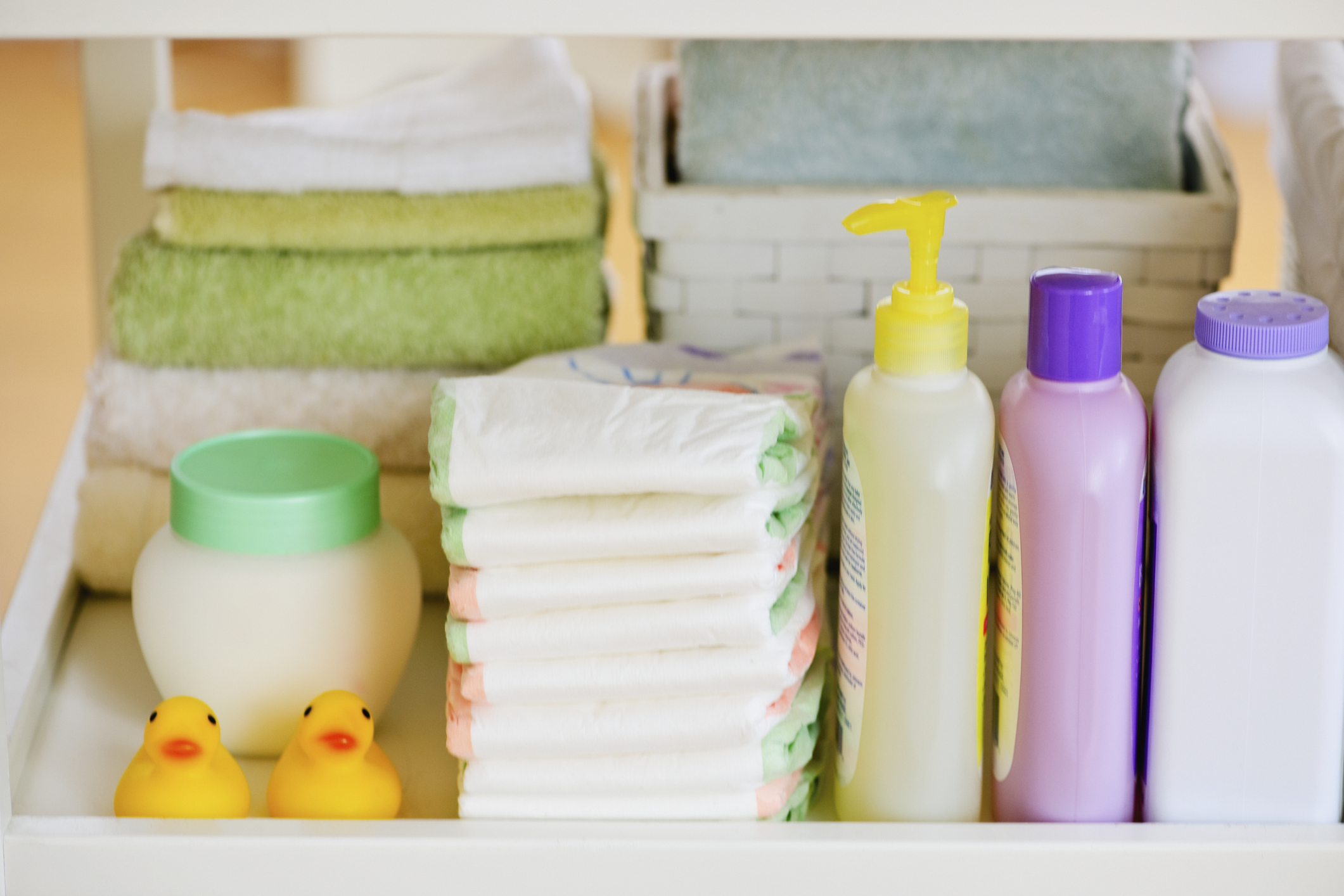Sales Tax Holidays for Back-to-School Shoppers in 2017
These 16 states offer sales tax breaks on everything from computers to paintbrushes this summer.


Profit and prosper with the best of Kiplinger's advice on investing, taxes, retirement, personal finance and much more. Delivered daily. Enter your email in the box and click Sign Me Up.
You are now subscribed
Your newsletter sign-up was successful
Want to add more newsletters?

Delivered daily
Kiplinger Today
Profit and prosper with the best of Kiplinger's advice on investing, taxes, retirement, personal finance and much more delivered daily. Smart money moves start here.

Sent five days a week
Kiplinger A Step Ahead
Get practical help to make better financial decisions in your everyday life, from spending to savings on top deals.

Delivered daily
Kiplinger Closing Bell
Get today's biggest financial and investing headlines delivered to your inbox every day the U.S. stock market is open.

Sent twice a week
Kiplinger Adviser Intel
Financial pros across the country share best practices and fresh tactics to preserve and grow your wealth.

Delivered weekly
Kiplinger Tax Tips
Trim your federal and state tax bills with practical tax-planning and tax-cutting strategies.

Sent twice a week
Kiplinger Retirement Tips
Your twice-a-week guide to planning and enjoying a financially secure and richly rewarding retirement

Sent bimonthly.
Kiplinger Adviser Angle
Insights for advisers, wealth managers and other financial professionals.

Sent twice a week
Kiplinger Investing Weekly
Your twice-a-week roundup of promising stocks, funds, companies and industries you should consider, ones you should avoid, and why.

Sent weekly for six weeks
Kiplinger Invest for Retirement
Your step-by-step six-part series on how to invest for retirement, from devising a successful strategy to exactly which investments to choose.
Before you wander the aisles of your favorite department store to stock up on the new shoes and clothes your kids need to go back to school, first find out what deals your state (or one near you) is offering. There may be ways for you to save.
To ease the financial burden of filling up new backpacks, some states temporarily waive taxes on electronics and school supplies, as well as clothing and shoes. Most of these holidays are weekends – or even weeks – in July and August. In a handful of states, local sales taxes still apply.
Back-to-school shopping is big money. Market research firm eMarketer forecasts sales during July and August will rise 4% to set a new record this year. So shaving off sales taxes – which can reach 11% in the states that offer holidays – can spell big savings for shoppers.
From just $107.88 $24.99 for Kiplinger Personal Finance
Become a smarter, better informed investor. Subscribe from just $107.88 $24.99, plus get up to 4 Special Issues

Sign up for Kiplinger’s Free Newsletters
Profit and prosper with the best of expert advice on investing, taxes, retirement, personal finance and more - straight to your e-mail.
Profit and prosper with the best of expert advice - straight to your e-mail.
However, what comes as a relief to families isn’t so easy on states, which lose tax revenue during these holidays. For the first time since 2002, Georgia won’t hold a statewide sales tax holiday this year, which should save the state more than $70 million. Similarly, Oklahoma’s state legislature debated a three-year freeze on sales tax holidays, estimating that it would save the state $7.4 million annually (but 2017’s holiday is a go – see details below).
Here’s a look at 16 states that have upcoming sales tax holidays and what’s exempted. Wondering about online sales? Amazon.com says it will follow the holidays for products it fulfills but makes no promises for third-party sellers. Same story at Wal-Mart.com.
Alabama, July 21-23: Clothing that costs $100 or less per article (excluding accessories, such as cosmetics and jewelry, and protective or recreational equipment, such as tool belts, musical instruments and roller skates); single purchases of computers, software and computer supplies costing $750 or less; art supplies costing $50 or less per item; and books costing $30 or less each. Alabama’s holiday covers the state’s 4% sales tax, but it’s up to individual counties and localities whether they want to waive their taxes as well. Local taxes average 5% and can go as high as 7%, according to the Tax Foundation. This link from the Alabama Department of Revenue details local participation.
Arkansas, Aug. 5-6: Clothing that costs $100 or less per article; clothing accessories that cost $50 or less per item (excluding sewing, protective or recreational equipment); school supplies, such as binders, markers and notebooks; school art supplies; and school instruction materials, such as textbooks, posters and globes.
Connecticut, Aug. 20-26: Clothing and footwear that cost $100 or less per article (excluding athletic or protective footwear; accessories, such as jewelry and handbags; and protective gear).
Florida, Aug. 4-6: Clothing and footwear that cost $60 or less per article (down from $75 per item in previous years); school supplies costing $15 or less per article; and computers, software and computer supplies costing $750 or less per item.
Iowa, Aug. 4-5: Clothing and footwear that cost $100 or less per item (excluding accessories, sporting gear and protective equipment).
Louisiana, Aug. 4-5: During this sales tax holiday, the first $2,500 of most purchases are taxed at a rate of 3% instead of the state’s regular 5%. (Vehicles, taxable services — such as amusement and athletic event admissions and laundry — and the leases or rentals of personal property are excluded). But note that Louisiana has stiff local sales taxes that will still be in effect. These are, on average, about 5% but can go as high as 7%.
Maryland, Aug. 13-19: Clothing and footwear that cost $100 or less per item (excluding accessories, athletic gear, and sewing or protective equipment).
Mississippi, July 28-29: Clothing and footwear (excluding most accessories) that cost $100 or less per item.
Missouri, Aug. 4-6: Clothing (excluding accessories) that costs $100 or less per item; school supplies costing $50 or less per item; and computers costing $1,500 or less. Missouri localities may still levy their local sales taxes, which average just under 4%. A detailed list of what rate is in effect for each location is available here.
New Mexico, Aug. 4-6: Clothing and footwear (excluding accessories and athletic gear) that cost $100 or less per item; a single purchase of a computer costing $1,000 or less; computer software or hardware costing $500 or less per item; and school supplies costing $30 or less.
Ohio, Aug. 4-6: Clothing that costs $75 or less per item; and school supplies and instructional materials costing $20 or less.
Oklahoma, Aug. 4-6: Clothing and footwear costing $100 or less per item (excluding items designed for athletic use, such as soccer cleats, or protective use, such as work boots, along with most accessories).
South Carolina, Aug. 4-6: Clothing (excluding most accessories and recreational equipment); computers, computer software and school-related supplies and technology (excluding cameras, cell phones, hobby equipment and janitorial supplies); and most dormitory and home goods (excluding bathroom accessories — such as soap and towel holders — mattresses, cookware and hobby equipment, such as musical instruments).
Tennessee, July 28-30: Clothing and footwear that cost $100 or less per item (excluding most accessories and sporting equipment); school and art supplies costing $100 or less per item; and computers, laptops, tablets and iPads costing $1,500 or less. (Other technology items, such as printers, cameras and cell phones, are not tax-exempt.)
Texas, Aug. 11-13: Clothing and footwear that costs $100 or less per item (excluding most accessories and recreational equipment); and certain school supplies costing $100 or less per item.
Virginia, Aug. 4-6: School supplies that cost $20 or less per item; clothing and footwear costing $100 or less per item; portable generators costing under $1,000; gas-powered chainsaws costing $350 or less; chainsaw accessories costing $60 or less per item; other hurricane preparedness items costing $60 or less per item; and products labeled with Energy Star or WaterSense that cost $2,500 or less per item.
Profit and prosper with the best of Kiplinger's advice on investing, taxes, retirement, personal finance and much more. Delivered daily. Enter your email in the box and click Sign Me Up.

-
 Quiz: Do You Know How to Avoid the "Medigap Trap?"
Quiz: Do You Know How to Avoid the "Medigap Trap?"Quiz Test your basic knowledge of the "Medigap Trap" in our quick quiz.
-
 5 Top Tax-Efficient Mutual Funds for Smarter Investing
5 Top Tax-Efficient Mutual Funds for Smarter InvestingMutual funds are many things, but "tax-friendly" usually isn't one of them. These are the exceptions.
-
 AI Sparks Existential Crisis for Software Stocks
AI Sparks Existential Crisis for Software StocksThe Kiplinger Letter Fears that SaaS subscription software could be rendered obsolete by artificial intelligence make investors jittery.
-
 Five Ways to Save on Vacation Rental Properties
Five Ways to Save on Vacation Rental PropertiesTravel Use these strategies to pay less for an apartment, condo or house when you travel.
-
 Should You Buy Life Insurance? Four Cases When You Should or Shouldn't
Should You Buy Life Insurance? Four Cases When You Should or Shouldn'tinsurance If no one depends on your income for support, you probably don't need life insurance at all.
-
 How to Avoid Annoying Hotel Fees: Per Person, Parking and More
How to Avoid Annoying Hotel Fees: Per Person, Parking and MoreTravel Here's how to avoid extra charges and make sure you don't get stuck paying for amenities that you don't use.
-
 States That Still Tax Diapers
States That Still Tax DiapersSales Taxes Most states still tax diapers. Is your state one of them?
-
 How to Appeal an Unexpected Medical Bill
How to Appeal an Unexpected Medical Billhealth insurance You may receive a bill because your insurance company denied a claim—but that doesn’t mean you have to pay it.
-
 Amazon Prime Fees Are Rising. Here’s How to Cancel Your Amazon Prime Membership
Amazon Prime Fees Are Rising. Here’s How to Cancel Your Amazon Prime MembershipFeature Amazon Prime will soon cost $139 a year, $180 for those who pay monthly. If you’re a subscriber, maybe it’s time to rethink your relationship. Here’s a step-by-step guide to canceling Prime.
-
 How Does Marriage Affect Your Credit Score?
How Does Marriage Affect Your Credit Score?Starting a Family While credit reports aren’t merged for married couples, individual records can affect joint loans. Learn the rules to ensure good credit goes along with a good marriage.
-
 How to Haggle for Almost Anything
How to Haggle for Almost AnythingSmart Buying Learning how to haggle is an invaluable skill. These strategies will help you negotiate a better price for just about any product or service.